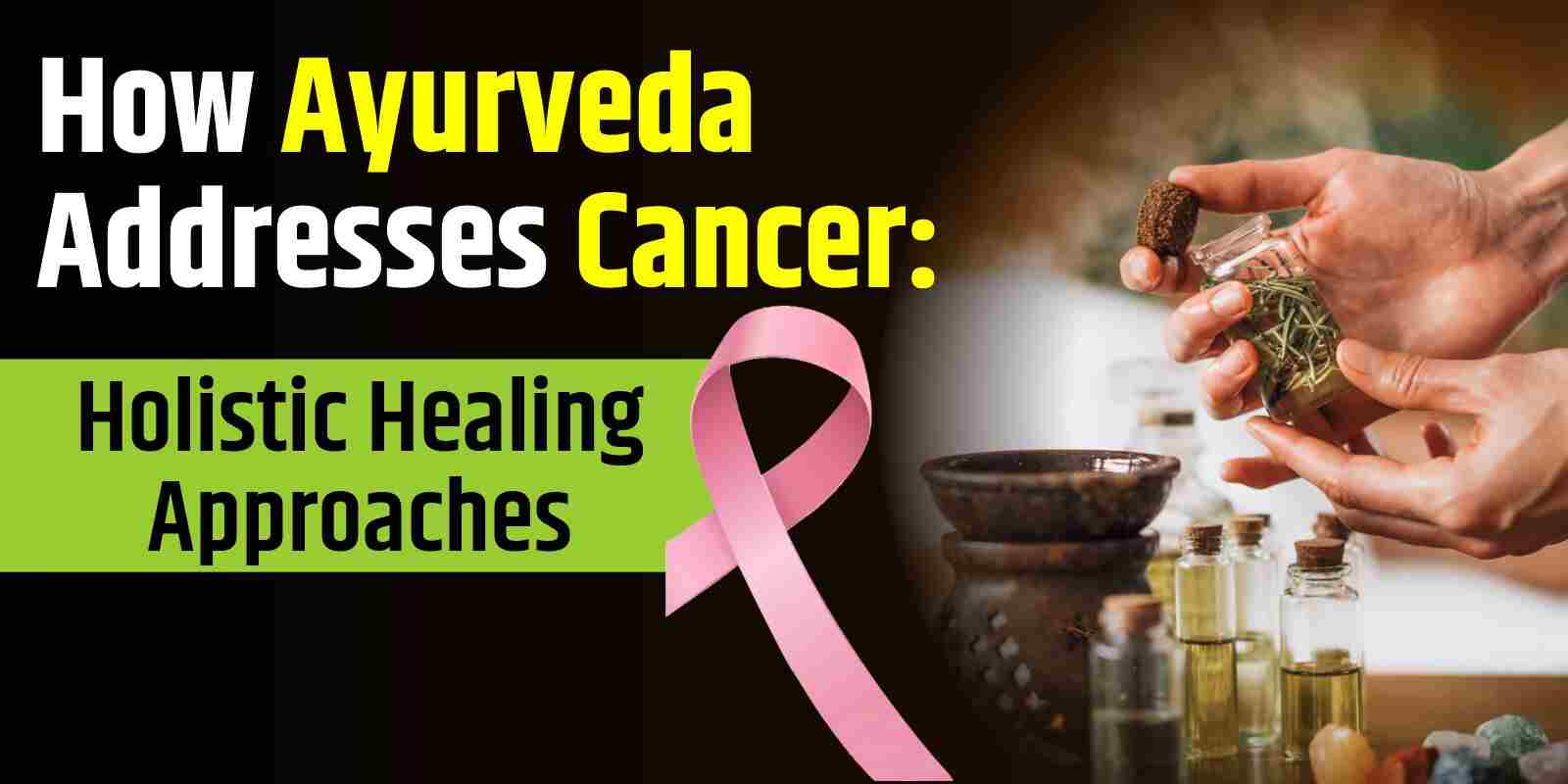
Cancer has become a global health concern with millions of patients getting affected by it per year. While conventional treatments like chemotherapy, radiation, and surgery have dominated the pie chart of cancer treatment, Ayurvedic treatment for cancer has also attracted the attention of many in the past few years due to its non-invasiveness and the use of potent Ayurvedic herbs. Modern treatments may be accompanied by multiple side effects and this is where Ayurveda comes in handy. Cancer treatment in Ayurveda utilizes herbs to nullify the side effects and ease your rehab. This article will shed more light on the Ayurvedic viewpoint on cancer.
Ayurveda opines that cancer is the manifestation of the imbalance between the three doshas inside the body. An accumulation of toxins (Ama) in the body is the disruptive force that throws the balance between vata, kapha, and pitta out of the picture. These doshas are in charge of various physiological functions and any disruptions can lead to serious health disorders in the body, including cancer.
From an Ayurvedic viewpoint, cancer is an aggravation of the Pitta dosha, which is responsible for various functions such as metabolism, transformation, and heat. An imbalance in this dosha results in inflammation and the overproduction of cells, ultimately resulting in the formation of tumors.
Detoxification (Panchakarma)
Panchakarma includes a series of five key treatments:
Panchakarma helps boost the body’s natural defense mechanisms, quickening the rehab process for cancer patients.
Strengthening the Body (Rasayana)
Some of the most commonly used Rasayana herbs recommended to cancer patients are:
Rasayana herbs rejuvenate the body and boost the immune system. These herbs may mitigate the side effects of chemotherapy and radiation, such as fatigue, nausea, and immune suppression.
Ayurveda places a lot of emphasis on the mind-body connection, as it views the mind to be the driving force in our bodies. In Ayurveda, emotional and psychological well-being is as vital as physiological well-being. Emotional stress, anxiety, and unresolved grief may result in health disorders, according to Ayurveda. With practices such as Yoga, mindfulness, and meditation, cancer treatment in Ayurveda offers a unique angle to cancer treatment. Practicing deep-breathing exercises calms the nerves, enhances oxygen flow, and promotes a sense of calm and peace in cancer patients.
Cancer treatment in Ayurveda is incomplete without diet and lifestyle changes. Cancer patients need a personalized approach to nutrition that rectifies their vikriti (imbalances) in a comprehensive way. Ayurvedic practitioners may recommend specific food items that may aid in balancing the doshas, strengthening digestion, and promoting healing. For example:
Conclusion
Ayurveda addresses cancer in multiple ways and it provides a unique, holistic approach to treating cancer via specific Ayurvedic herbs, therapies, and lifestyle changes. Ayurveda places a lot of importance on detoxifying the body, supporting the immune system, and promoting emotional well-being. With a smooth integration of Ayurvedic practices such as Panchakarma, Rasayana, diet, and lifestyle modifications, cancer patients can experience a better and swifter healing process.
"Ayurveda is not just a system of medicine; it's a way of life. Connect with us to embrace a lifestyle that nurtures your body, mind, and soul."

Certificate no- AH-2023-0186
JAN 05,2023-JAN 04,2026